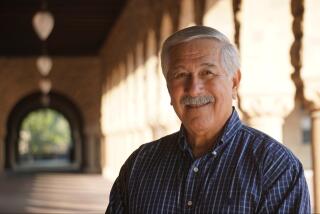No Pat Ending to Moving Memoir
Great writing is so rare and unexpected that it can take your breath away. The subject rarely matters. John McPhee transformed old tires into allegories for life, and Kazuo Ishiguro made the humdrum responsibilities of a butler ache with the pain of loneliness. In this slender memoir, J.D. Dolan condenses the pain of decades into tight, terse prose, and we are left shaken and moved.
His first story was about to be published, and he was in Paris, both giddy and sober at the thought of the new career in front of him. Then he got the call. “My whereabouts were no great secret,” he writes, “but if somebody needed to reach me, he’d have to have a good reason or bad news to track me down. My brother-in-law Ernie had both.” J.D.’s brother had suffered third-degree steam burns over 90% of his body during an inexplicable explosion at a power plant in the California desert where he worked. He had been taken to the burn unit at a hospital in Phoenix, and Dolan flew back to be at his side.
What follows is a story of family dysfunction so inexorable that it is a wonder that Dolan is able to have the awareness he does. He begins his memoir with 20 pages of starry-eyed nostalgia that signal we are about to enter a “Leave It to Beaver” universe. But the bonds of love and adoration that joined Dolan to his older brother and one of his older sisters when he was a small child only make the severing of those bonds that much more painful and perplexing.
When he arrives at the hospital, J.D. hasn’t spoken to his brother John in almost five years. In his family, that’s not even remarkable. At one point, his father didn’t speak to J.D.’s sister for 10 years, and another of J.D.’s sisters hadn’t spoken to his brother for three years. “My brother,” Dolan writes, “was keeping up our grim family tradition.” Just as he’s about to condemn it, Dolan remembers that once he was so angry at his father that he didn’t speak to him for six months. “Silence as punishment--I realized, as I sat there beside my brother at our father’s funeral--was flowing in my veins too.”
Dolan doesn’t know why his brother became so bitter and withdrawn, and he never learns the answer. His brother lies in a semi-coma, his body a mass of hurting exposed flesh, while his sisters refuse to let him die and insist that heroic efforts be taken to save his life. They hope for a miracle, but Dolan sees it differently. He sees them denying John what little dignity he has left: the dignity to die. And their selfishness touches wells of feeling so deep that he says nothing. After his sister Janice demands that the doctors do whatever they can to facilitate a “miracle,” J.D. walks out of the hospital. “Just then, that whole group of exhausted, teary-eyed people--my mother, my sisters, his friends--were either part of the sinister forces who had killed my brother or part of the sinister forces who were keeping him alive.”
He knows that his anger is misplaced, that his feelings are the raw vestige of years of pain and alienation. But there is no bridge to cross between him and his sisters, and his brother, on the edge of death, can say nothing. John doesn’t last long, and finally slips away, and Dolan is left to answer what he can for himself.
Trying to make some sense of John’s life, he concludes that his older brother was somehow changed by the war in Vietnam, by a bad marriage and by the passing of years that beat out of him his simple love of the desert. As he says goodbye to his brother, Dolan remembers the joy and adoration. He remembers what was there before the anger. He sinks into that memory, into the feeling of safety he had in his brother’s arms, and the book ends.
If that sounds pat in summary, Dolan--his prose minimal, measured, controlled--makes it all acutely moving. He doesn’t claim that the answers are complicated. He doesn’t even claim that they are correct. But he needs a narrative to come to terms with his brother and his family. He needs words. And for a family where silence was a cruelty, words are hard won.
More to Read
Sign up for our Book Club newsletter
Get the latest news, events and more from the Los Angeles Times Book Club, and help us get L.A. reading and talking.
You may occasionally receive promotional content from the Los Angeles Times.








